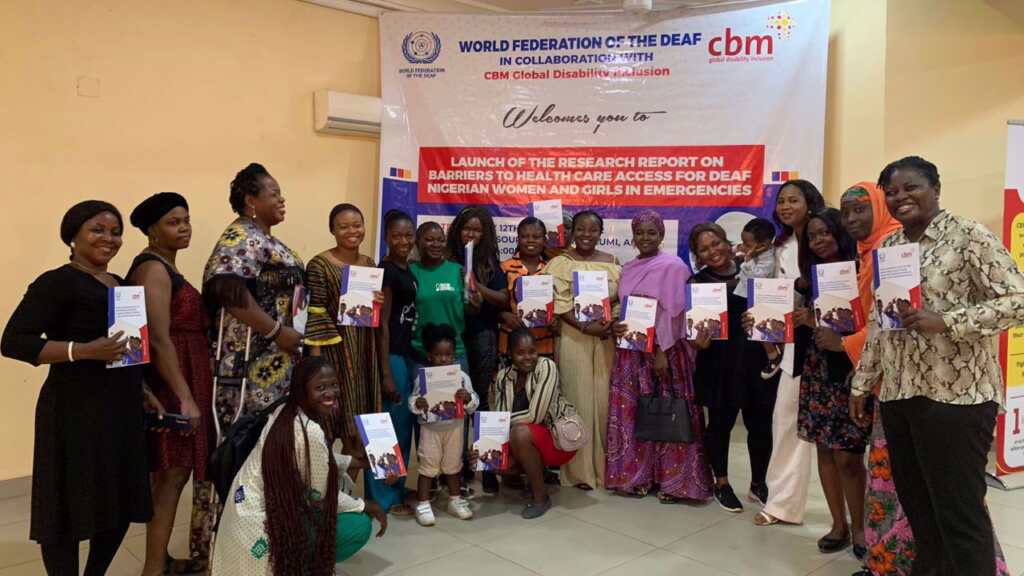
Our work on data advocacy with organisations of persons with disabilities (OPDs) continued to expand in 2022 and so also did our partnerships and alliances with key partners on data advocacy such as the Inclusive Data Charter. Some examples of our 2022 work to highlight include co-coordinating the Stakeholder Group of Persons with Disabilities disability data advocacy working group with the International Disability Alliance, which includes the interactive disability data list. The data list has a wide reach including OPDs, NSOs, and other stakeholders. Documenting the progress on advocacy for disability data was also a growing part of our evidenced based advocacy work in 2022. Working with OPDs partners and other INGOs in Kenya we held a workshop in Kenya together with United Disabled Persons of Kenya (UDPK) as part of continued dialogues on disability data and building capacities of OPDs and other stakeholders. Other examples of data advocacy work included a focus on citizen generated data in the Philippines, supported by our country team and working also with our inclusion advisory group on OPD data advocacy capacity. Find out more about our data advocacy work.
Working with our partners for advocating for policy change at the global and national levels is a critical area of our advocacy work. Led by our OPD partners, the International Disability Alliance (IDA), World Blind Union, and the World Federation of the Deaf we work in partnership to ensure that policy gaps at global and national levels in data, climate, and accessibility are addressed. Some of the key forums we have supported our partners in include; the World Urban Forum, the High-Level Political Forum, and the World Data Forum. We believe that participatory research led by disability advocates is important for effective advocacy and in partnership with our Nigeria country team, we were pleased to partner with the World Federation of the Deaf on the launch of a report led by a deaf researcher on deaf women’s barriers to healthcare.
Capacity building is also an important focus for our partners and which we are proud to support, including contributing to programmes such as the Bridge CRPD-SDG initiative in partnership with IDA and co-leading the OPD capacity development working group of the Disability Reference Group (DRG) promoting inclusive humanitarian action. Capacity building on advocacy can also take the form of working with smaller, less well established groups. In 2022, we were delighted to continue to facilitate and support peer-to-peer learning between People First an OPD in the UK led by people with learning difficulties and self-advocates in Nepal through our Nepal Country Team and Nepal OPD umbrella (NFDN). This unique pilot project was also showcased through an international webinar in November and forms part of our commitment to promote the voice and role of under-represented groups.
Working in alliances and networks makes advocacy more effective. In 2022 we were elected to co-vice chair the International Disability Development Consortium, an important network of civil society organisations coming together around a common objective: promoting inclusive international development and humanitarian action. CBM Global also cochairs three working groups in the IDDC network, the Climate Action Task Group, the UN Task Group and the OPD Task group. Other alliances and networks we engage in on our advocacy priorities include the Climate Action Network International and the climate change and human rights working group which is part of the Centre for Environmental Law.
